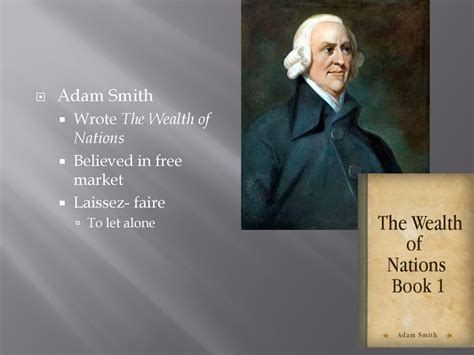The monumental work, “The Wealth of Nations,” was penned by the illustrious Scottish philosopher and economist, Adam Smith. Published in 1776, this seminal book is widely regarded as the foundational text of modern capitalism and has had a profound impact on the development of economic theory and policy.
To delve into the background of this iconic figure, Adam Smith was born on June 5, 1723, in Kirkcaldy, Scotland. His father, also named Adam Smith, was a comptroller of customs, and his mother, Margaret Douglas, came from a prominent family. Smith’s early life was marked by a passion for learning, and he attended the University of Glasgow, where he studied under the tutelage of the esteemed philosopher Francis Hutcheson. Later, he moved to Oxford University, where he spent six years immersed in the works of great thinkers, laying the groundwork for his future intellectual contributions.
Smith’s academic journey and professional career were intertwined with some of the most influential minds of his time. He became a close friend and confidant of David Hume, a fellow Scottish philosopher and historian, with whom he shared a deep interest in philosophy, economics, and politics. Their friendship not only enriched Smith’s intellectual pursuits but also played a significant role in shaping his thoughts on morality, markets, and human nature.
“The Wealth of Nations” is a comprehensive treatise that explores the nature of economic growth and development, challenging the prevailing mercantilist views of the time. Smith introduced the concept of the “invisible hand,” which posits that individuals acting in their own self-interest can inadvertently create social benefits, leading to more efficient markets and economic prosperity. This idea, coupled with his advocacy for free trade, division of labor, and the notion that economic systems can self-regulate, formed the core of his economic theories.
One of the pivotal aspects of “The Wealth of Nations” is its detailed analysis of the industrial and commercial systems of Europe. Smith meticulously examined the economic structures of various countries, providing insightful commentary on the strengths and weaknesses of each system. His observations on the division of labor, using the example of a pin factory to illustrate how specialization increases productivity, remain a cornerstone of economic theory. Moreover, Smith’s critique of monopolies and his emphasis on competition as a driver of innovation and lower prices underscored the importance of market forces in shaping economic outcomes.
The impact of “The Wealth of Nations” cannot be overstated. It has influenced generations of economists, policymakers, and business leaders, shaping the course of economic thought and practice. Smith’s ideas about the benefits of free markets, the efficiency of the price system, and the limited role of government in economic affairs have been particularly influential. Despite criticisms and challenges to his theories over the centuries, “The Wealth of Nations” remains a foundational work in the field of economics, continuing to inspire new research, debates, and policy initiatives.
In conclusion, Adam Smith’s “The Wealth of Nations” is a testament to the power of ideas in shaping human society. As a work of profound insight and visionary thinking, it continues to guide our understanding of economic systems, market dynamics, and the human condition. Through its pages, Smith not only provided a nuanced exploration of economic principles but also offered a broader reflection on the nature of society, morality, and human prosperity.
What is the main idea behind Adam Smith's concept of the "invisible hand"?
+The concept of the "invisible hand" suggests that individuals acting in their own self-interest can lead to socially beneficial outcomes, such as more efficient markets and economic growth, without the need for centralized direction.
How did Adam Smith's friendship with David Hume influence his work?
+Adam Smith's friendship with David Hume had a significant impact on his intellectual development. Hume's philosophical and historical works, as well as their discussions on morality, politics, and economics, likely influenced Smith's thoughts on these subjects, which are reflected in "The Wealth of Nations."
What are some of the key economic concepts introduced in "The Wealth of Nations"?
+"The Wealth of Nations" introduces several key economic concepts, including the division of labor, the concept of absolute advantage in international trade, and the critique of mercantilism. It also explores the role of markets, prices, and the "invisible hand" in allocating resources efficiently within an economy.
The legacy of Adam Smith and “The Wealth of Nations” serves as a reminder of the enduring power of ideas to shape our understanding of the world and our place within it. As we continue to navigate the complexities of economic systems and global markets, the insights provided by Smith’s magnum opus remain as relevant today as they were at the time of its publication, offering a timeless perspective on the intricacies of human economic behavior and the pursuit of prosperity.



